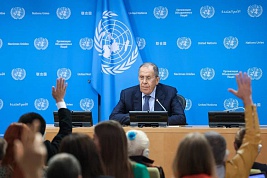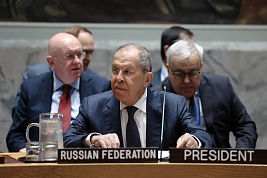Comment by Foreign Ministry Spokeswoman Maria Zakharova on a letter from the Federal Ministry of Justice and Consumer Protection of Germany to the Prosecutor General’s Office of Russia regarding the “Navalny case”
We are still waiting for the German authorities to provide a substantive reply to the official Russian addresses of August 27 and September 14, 24 and 28, 2020, requesting legal assistance from the concerned German agencies within the framework of the pre-investigative probe conducted by the Russian Ministry of the Interior into the reasons for the emergency hospital admission of blogger Alexey Navalny in Omsk on August 20, 2020. Our German colleagues have been using a variety of reasons and far-fetched explanations to deliberately delay taking action on our requests contrary to their own promises and commitments in the sphere of international legal cooperation.
Nothing has changed in this sense. It was only on October 30, 2020 that the Prosecutor General’s Office of Russia received a letter from the Federal Ministry of Justice and Consumer Protection of Germany regarding the case of Alexey Navalny. Our colleagues at the Prosecutor General’s Office have already commented on it. The Foreign Ministry of Russia has read this letter as well and has concluded that it only reaffirms Berlin’s avoidance of constructive collaboration to clarify the real circumstances of the incident with the Russian citizen. It is surprising that it has taken the German law enforcement bodies nearly three months to formulate this short runaround reply.
Instead of replying to the very concrete questions formulated in the above mentioned four requests or sharing any information, the German Federal Ministry has presented its counter-questions, reaffirming that the German authorities do not intend to provide any material proof of Navalny’s alleged poisoning with Novichok, including biomaterials and the results of medical tests.
We would like to point out in this connection that all the essential information has been previously removed, at Germany’s request, from the OPCW report on the provision of technical assistance to Germany in this case. This brings up a reasonable question: What information are our German counteragents hiding, and why are they afraid of disclosing it?
Moscow hopes that Berlin will eventually honour its legal international obligations under the 1959 European Convention on Mutual Assistance in Criminal Matters, and that it will launch substantive bilateral interaction on the Navalny case in keeping with Article 9 of the Chemical Weapons Convention. We hope the German Government will stop artificially politicising the case of the Russian blogger, which is doing serious harm to Russian-German relations.
.


